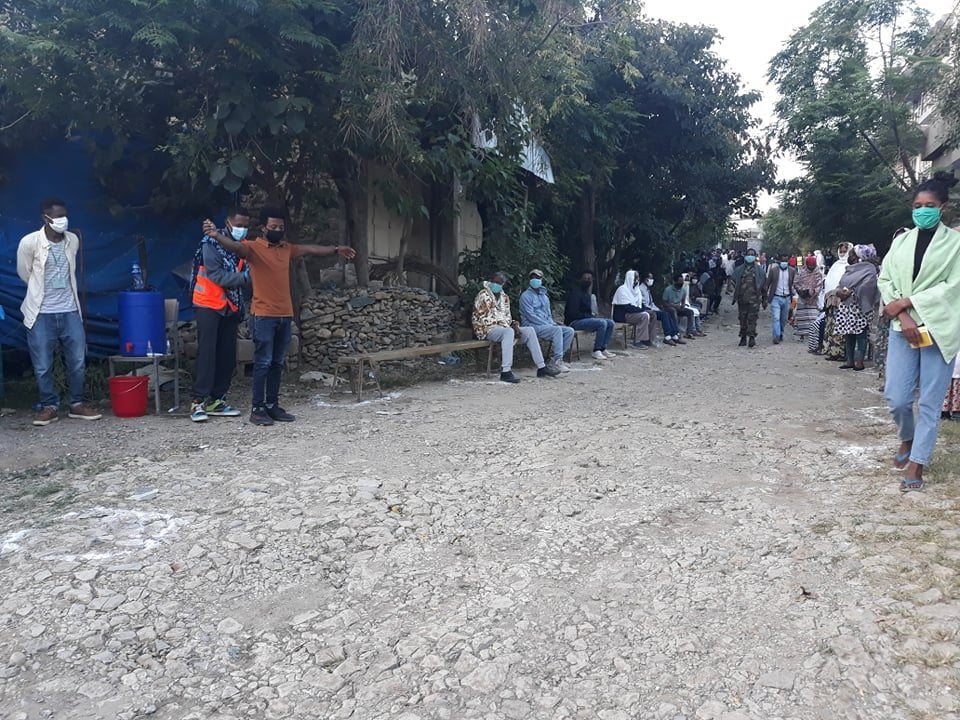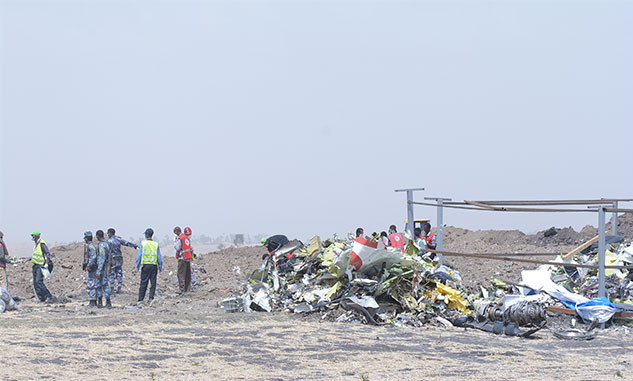
Jun 9 , 2021

Authorities of the federal government have denied the risk of famine in Tigray Regional State, despite pressure from Western governments and international humanitarian organisations warning of the prospect of deaths in the thousands.
In a press briefing held at the Office of the Prime Minister today, Mitiku Kassa, head of the National Disaster Risk Management Commission, iterated that the humanitarian situation in Tigray does not pose a risk of famine. He maintains that there are no food shortages due to an adequate amount of aid being provided.
No less than 20pc of households in a specific area should face food shortages with the inability to cope, and there should be acute malnutrition rates among children above 30pc, while the deaths of two out of 1,000 people daily due to hunger are other indicators necessary to declare there is famine, according to Mitiku.
The world sees what is unfolding in Tigray differently.
Famine is imminent in Tigray, according to the United Nations humanitarian chief, Mark Lowcock. He warned that there is a risk that hundreds of thousands of people or more could die if the humanitarian emergency is not delivered in time for a population caught up in the conflict between warring parties in the regional state, since November last year.
"We’re hearing of starvation-related deaths already,” Lowcock said.
His fears were amplified this week by UN Secretary-General Anthony Guterres and David Beasley, head of the World Food Programme (WFP), a close friend of Prime Minister Abiy Ahmed (PhD). He first negotiated humanitarian access to the region after the outbreak of the war.
"People are dying of hunger in Tigray," Beasley tweeted yesterday.
This has not happened in Tigray, according to Mitiku.
InterAction, a US-based aid agency, says the "scale of hunger is worse because many parts of the region remain difficult, if not impossible, for humanitarian agencies to access.”
More than 90pc of the population in Tigray requires emergency food assistance. Aid agencies, including the WFP, handle more than 90pc of the food distribution works, while the government’s role is confined to creating a conducive environment for them. However, it handles the supply of food items in 14 woredas in Western Tigray. About 4.5 million people have received aid in Tigray so far, according to the government.
"Time is running out," warns the WFP chief. "We need unfettered humanitarian access to scale up and avert a catastrophe. ALL parties must make good on this commitment NOW."

Photo Gallery | Sep 09,2020

Fortune News | May 29,2021

Fortune News | Feb 19,2022

Commentaries | May 20,2023

Editorial | Jan 23,2021

Fortune News | Sep 14,2019

My Opinion | Jul 09,2022

Fortune News | Jul 06,2019

Fortune News | Apr 26,2019

Radar | Jan 22,2022

My Opinion | 131451 Views | Aug 14,2021

My Opinion | 127803 Views | Aug 21,2021

My Opinion | 125784 Views | Sep 10,2021

My Opinion | 123419 Views | Aug 07,2021

Jun 28 , 2025
Meseret Damtie, the assertive auditor general, has never been shy about naming names...

Jun 21 , 2025
A well-worn adage says, “Budget is not destiny, but it is direction.” Examining t...

Jun 14 , 2025
Yet again, the Horn of Africa is bracing for trouble. A region already frayed by wars...

Jun 7 , 2025
Few promises shine brighter in Addis Abeba than the pledge of a roof for every family...